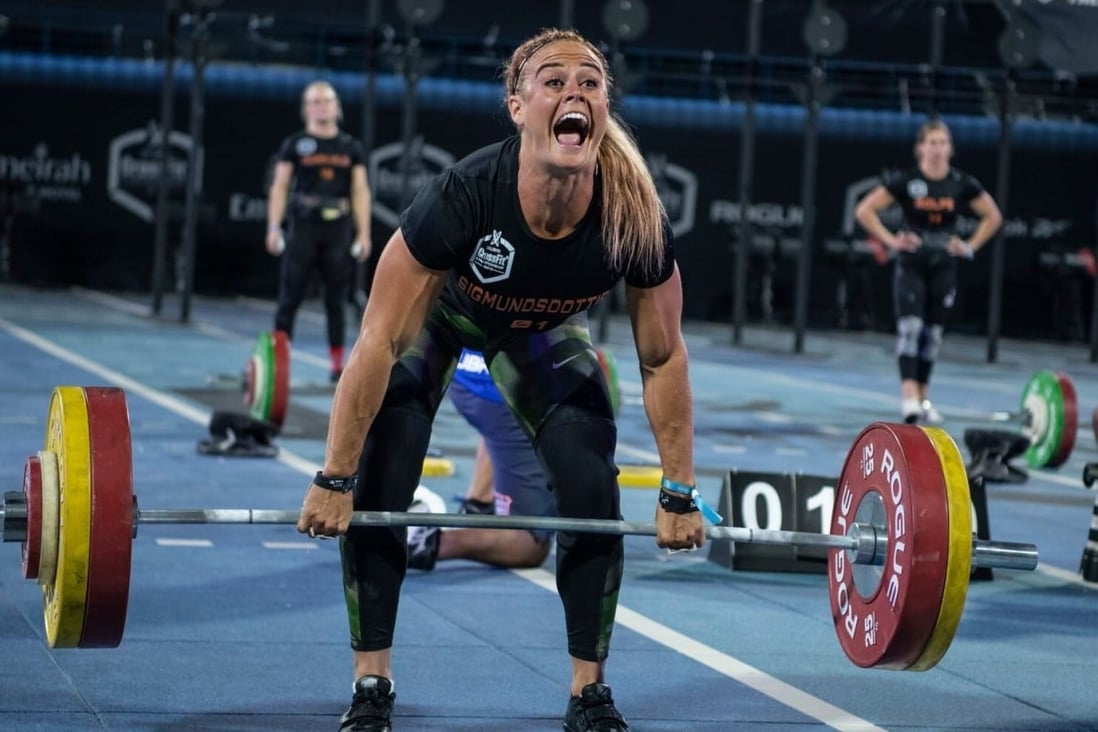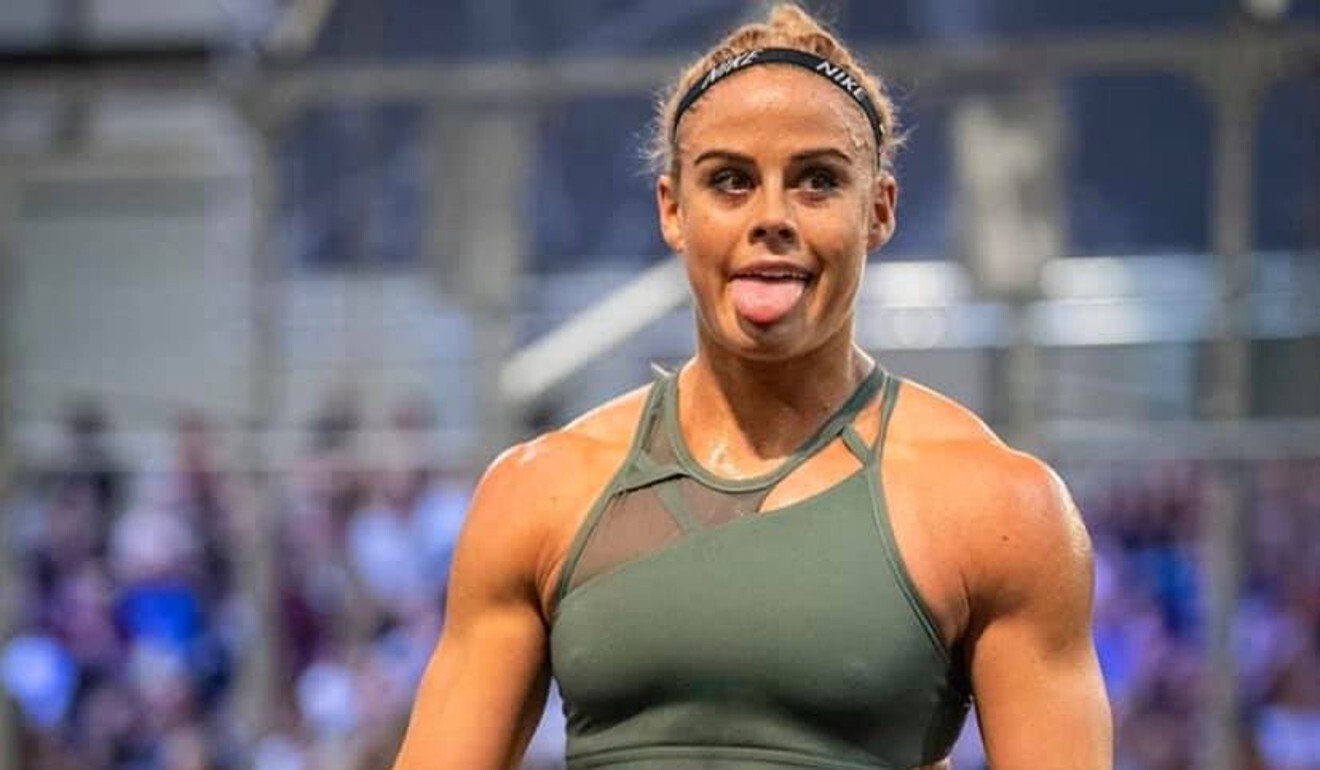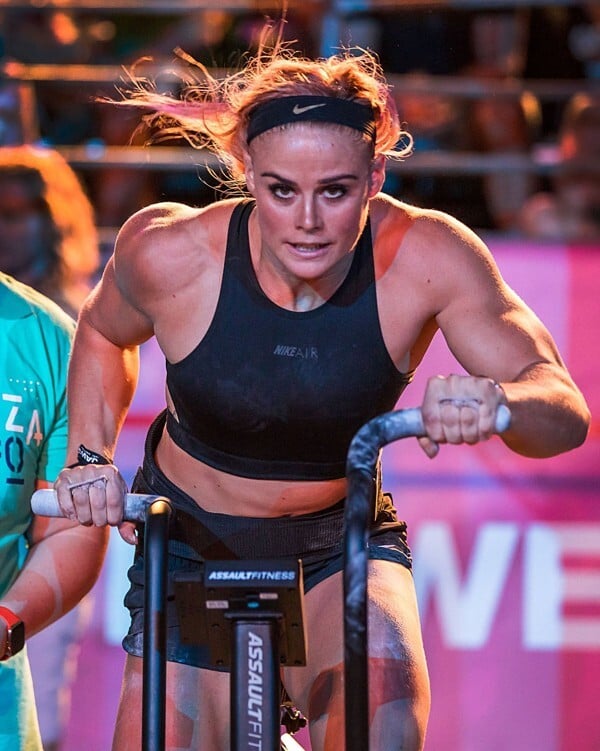
Sara Sigmundsdottir is one of the most recognisable names in CrossFit, with an array of podiums to her name and constant speculation that she could be crowned the next “Fittest on Earth” by winning the CrossFit Games.
She seemed to appear out of nowhere, bursting onto the scene in 2015. But where did the 1.73-metre tall, 69kg superstar come from?
Biography
Sigmundsdottir was born in Reykjanesbaer, Iceland, in 1992. In 2013, she made her CrossFit debut but travelled under the radar, finishing 427th in the Open and 39th in the Europe Regionals. She improved the next year, finishing 75th in the Open and 12th in the Regionals. But it was in 2015 when she burst onto the scene in a big way.

She finished third in the Open, won the regionals and then finished third in her Games debut. Suddenly, the CrossFit world was abuzz in awe of the Icelander. She repeated her third place finish in 2016 and finished fourth in 2017.
The 2015 and 2016 CrossFit Games champion was fellow Icelander Katrín Davidsdottir. The fact there were two Icelanders added to the fanfare around both and propelled Sigmundsdottir into star status.
Who is CrossFit champion and ‘Fittest Man on Earth’ Mat Fraser?
Ever since, each Games is accompanied by speculation that this could be Sigmundsdottir’s year to claim the title.
But she has been plagued by injuries. A stress fracture to one of her ribs in 2018 ended her season early. The following year, the Games introduced cuts, reducing the field after each round. Sigmundsdottir was one of the first big-name casualties.
“It was a little bit unfair. What I’ve always loved about CrossFit is you can make a mistake and come back so much stronger again, but last year’s Games, reflecting ‘did this really happen? Was this really the CrossFit Games? Is this the CrossFit Games I’ve been watching for five years?’” she said.

In 2020, the format was changed because of Covid-19. There were 30 women competing remotely for five spots for the in-person finals in California. A particularly strong season, where she had claimed wins at the Sanctionals in Ireland and Dubai, meant that speculation of success was higher than ever.
But she did not make it through the first round, finishing 21st.
She later explained that a bad cut, sustained when box jumping and resulting in a visit to hospital, became infected. The infection had caused adrenal insufficiency, causing a cortisol imbalance, the hormone associated with growth, preventing her from performing to her potential.
‘Don’t fear carbs’ – CrossFit athletes’ myth-busting nutrition coach
Diet
Being one of the fittest on earth requires a seriously specific diet.
According to Sigmundsdottir’s nutrition coach Mike Molloy, she weighs her food in the build-up to a competition so she knows the exact amount of carbs, proteins and other food groups.

But afterwards, she will go back to a generally healthy diet. Then, she dials it in for most days of the week, and in the final block up to the competition Sigmundsdottir is back to weighing every meal.
“She has extreme goals, so she needs extreme methods,” Molloy said. “If she did it six days a week, she could be incredibly fit, but if she wants to maximise her potential she needs to do this. But after the competition, we’ll back off, let her relax or she’ll burn out.”
In 2019, she changed to a vegan diet. With the aid of her food tracker ensuring she has enough protein, she eats beans, lentils, tofu, vegetables, quinoa, rice and sweet potatoes, according to ESPN.
Psychology
Sigmundsdottir, who lives in California, is studying for a BA in Psychology at The Open University.
“In between sessions I get my studying done. I’m working on my BA in Psychology. So far, I’m on schedule,” she said on Instagram.
“I find that it helps me relax and stay focused to have other things to think about than just my sport. I usually get about an hour of studying done every morning after my first training session. I use the time to study, eat breakfast.”
Sara Sigmundsdottir explains her poor CrossFit Games 2020 performance
She wants to go on to study neuropsychology and the differences between the sexes, according to ESPN.
“It’s amazing what girls have to go through just being girls,” she says. “I’ve experienced a lot as a girl being an athlete, not getting my period and worrying and wondering how that will affect my future and having kids.”







